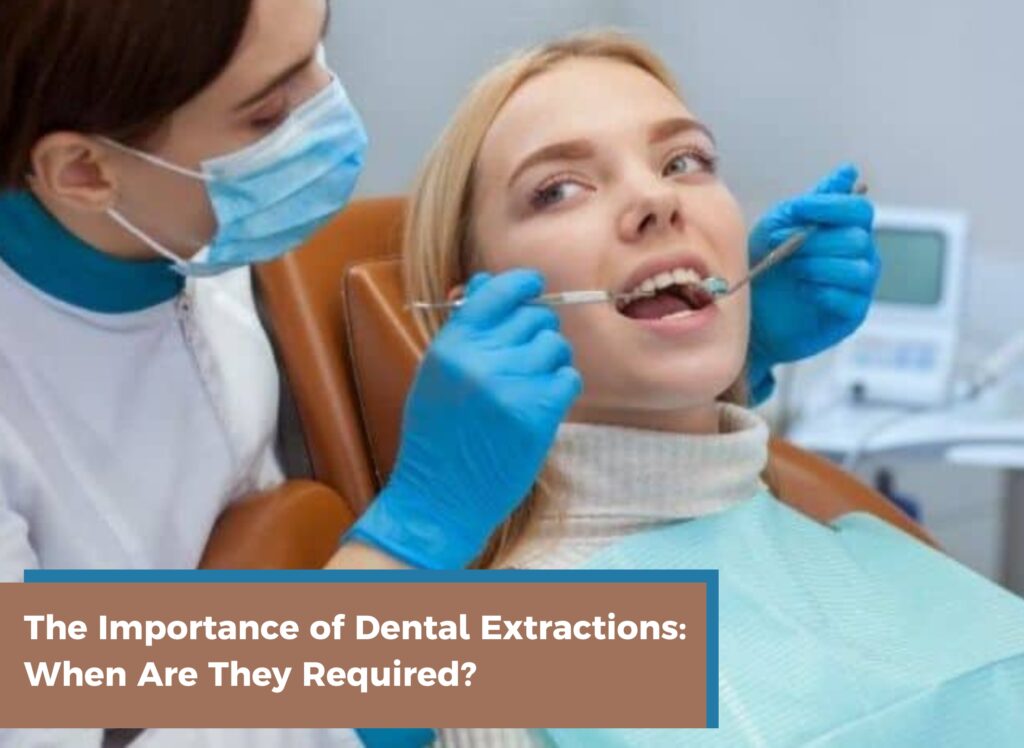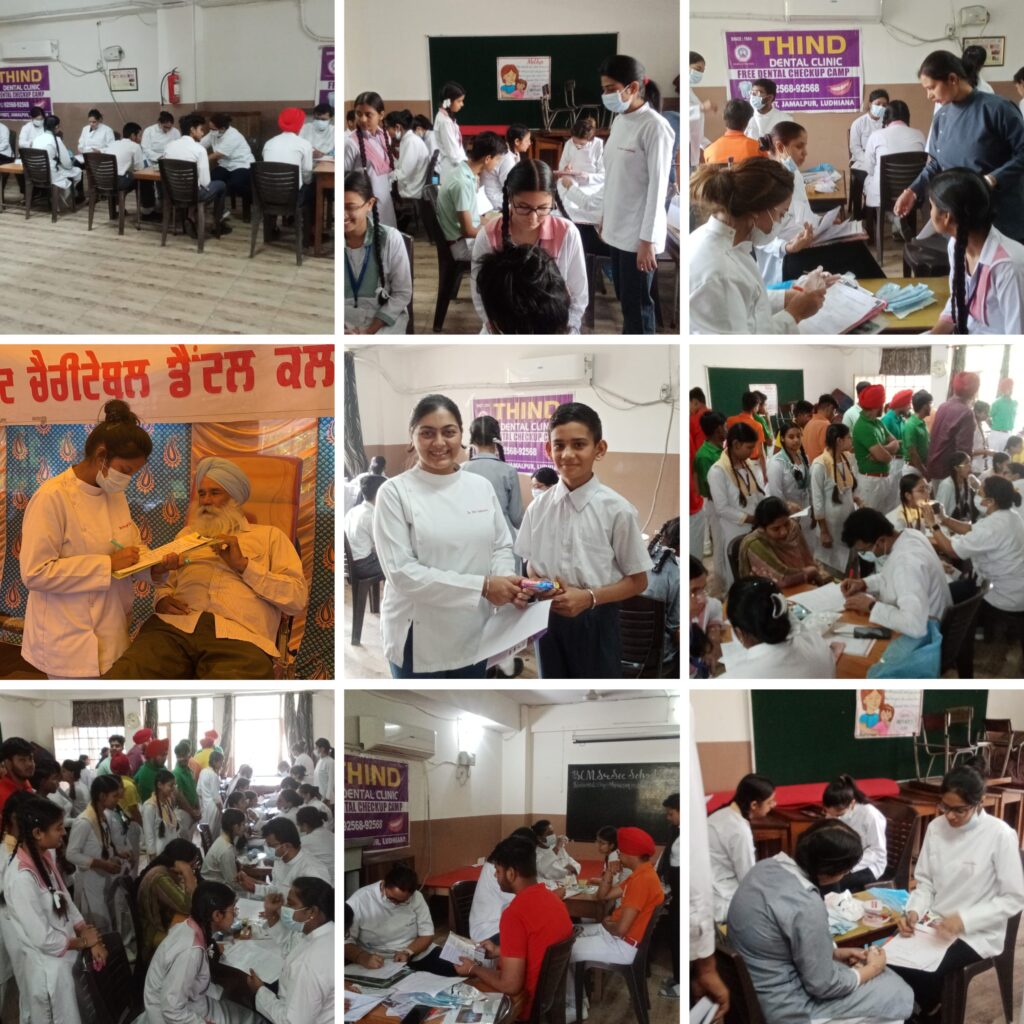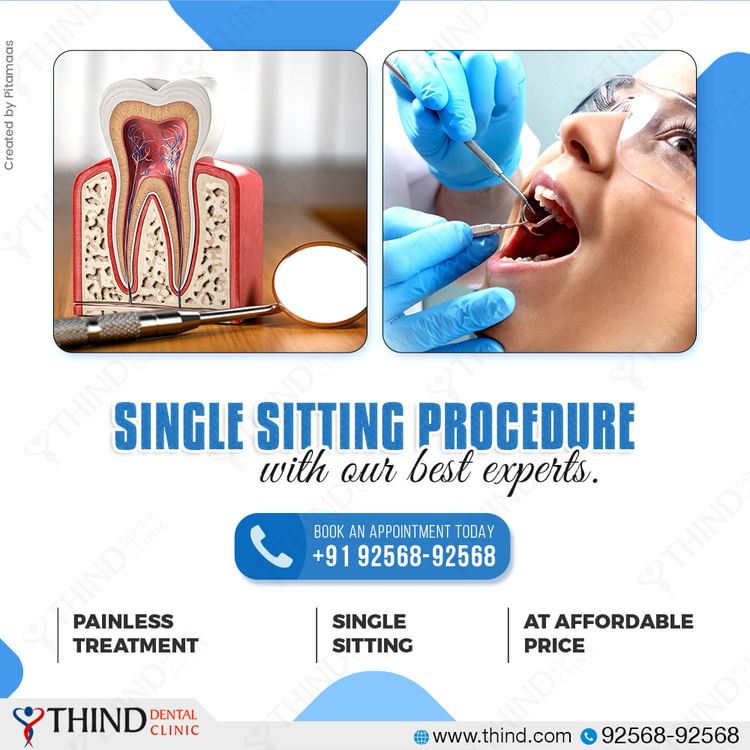A healthy smile requires maintaining good dental hygiene. However, there are instances when dental extractions become necessary to address specific dental issues. At Thind Dental Clinic in Ludhiana, we understand the importance of dental extractions in certain situations. In this article, we will delve into the various scenarios when dental extractions are required and why they are crucial for maintaining a healthy and functional mouth.
1. Severely Damaged or Decayed Teeth
One of the primary reasons for dental extractions is when a tooth is severely damaged or decayed. Teeth that are extensively decayed, fractured, or broken beyond repair may need to be extracted. When the damage or decay is so advanced that it cannot be effectively treated with restorative procedures such as fillings, dental crowns, or root canals, extraction becomes necessary. This helps prevent further infection, pain, and potential complications that could arise from leaving a damaged tooth in the mouth.
In cases of severe decay, the tooth structure may be compromised, making it difficult to restore its functionality and integrity. Similarly, a tooth that has suffered significant trauma or fracture may not be salvageable through restorative methods. In such situations, extraction is the recommended treatment option. By removing the damaged tooth, the dentist can eliminate the source of infection and pain, preserving the overall health of the oral cavity.
2. Impacted Wisdom Teeth
Wisdom teeth, also known as third molars, often present problems when they fail to fully emerge or erupt properly. Impacted wisdom teeth can cause pain, infection, gum disease, and even damage to surrounding teeth. Due to their location at the back of the mouth and the difficulty in accessing them for proper cleaning, they are prone to decay and other oral health issues. In such cases, dental extractions are commonly recommended to prevent future complications and to safeguard oral health.
When wisdom teeth are impacted, it means they are unable to fully emerge through the gum line. This can occur due to a lack of space in the jaw or improper alignment. Impacted wisdom teeth can lead to various problems, including pain, swelling, and infections. In some cases, they may push against adjacent teeth, causing misalignment and crowding. To prevent these issues and maintain the health and alignment of the existing teeth, extraction of impacted wisdom teeth is often necessary.
3. Overcrowding
Another reason for dental extractions is when there is overcrowding in the mouth, especially in cases where orthodontic treatment is necessary. Overcrowding occurs when there is insufficient space for all the teeth to align properly. In such situations, extracting one or more teeth can create the necessary space for the remaining teeth to shift into their proper positions during orthodontic treatment. By addressing overcrowding through dental extractions, orthodontic appliances such as braces or aligners can be more effective in achieving a straight and properly aligned smile.
Orthodontic treatment aims to correct malocclusion, improve bite alignment, and enhance the overall aesthetics of the smile. In cases where there is severe overcrowding, extracting specific teeth can help create the space needed for proper alignment. This strategic extraction allows the orthodontist to guide the remaining teeth into their ideal positions, optimizing the results of orthodontic treatment. The decision for dental extractions in orthodontic cases is made based on a thorough assessment of the individual’s dental condition and treatment goals.
4. Gum Disease
Advanced gum disease, also known as periodontal disease, can lead to severe damage to the gums and supporting structures of the teeth. As the disease progresses, the gums recede, the bone supporting the teeth deteriorates, and the teeth become loose. In cases where the damage caused by gum disease is extensive and the affected teeth are no longer viable, dental extractions may be necessary. Removing these teeth helps eliminate the source of infection and allows for the initiation of gum disease treatment to preserve the remaining teeth.
Gum disease is a bacterial infection that affects the gums and supporting structures of the teeth. When left untreated, it can progress to advanced stages, causing significant damage to the gum tissue and bone. In severe cases, the teeth may become loose and may not be able to be saved through conventional treatments such as scaling and root planing. In these situations, dental extractions are required to eliminate the source of infection and to prevent further damage to the surrounding tissues.
5. Preparing for Orthodontic Treatment
In some orthodontic cases, dental extractions are part of the preparation process for braces or other orthodontic appliances. The extraction of one or more teeth may be necessary to create enough space for proper alignment. This is especially true in cases of severe overcrowding or when there is a significant mismatch between the size of the jaws and the size of the teeth. By strategically extracting specific teeth, orthodontists can create space and align the remaining teeth more effectively, resulting in a more stable and balanced bite.
6. Trauma or Injury
Accidents or injuries can result in significant damage to the teeth, such as fractures, dislodgment, or complete tooth loss. When a tooth has been severely damaged and cannot be saved through restorative procedures such as root canal treatment or dental bonding, extraction may be the best course of action. Dental extractions in cases of trauma or injury help prevent infection and further complications that could arise from keeping a damaged tooth in the mouth. Depending on the situation, a dental implant or another tooth replacement option may be recommended to restore functionality and aesthetics.
Traumatic dental injuries can occur as a result of accidents, falls, or sports-related injuries. These injuries can range from minor chips or fractures to more severe cases where the tooth is completely knocked out. In cases where the tooth has suffered significant damage and cannot be salvaged, extraction may be necessary. By removing the damaged tooth, the dentist can ensure that there are no remaining fragments or infections, and appropriate measures can be taken to restore the missing tooth, if necessary.
Conclusion
Dental extractions are important procedures that are carried out when there is a clear need to remove a tooth for the overall benefit of oral health. Whether it is due to severe decay, impacted wisdom teeth, overcrowding, gum disease, orthodontic preparation, or trauma, dental extractions can help alleviate pain, prevent infection, and maintain the integrity of the remaining teeth. At Thind Dental Clinic in Ludhiana, our experienced dental professionals prioritize patient comfort and provide safe and effective extractions when necessary.
It is important to remember that dental extractions are performed by skilled professionals who consider your overall oral health and well-being. If you have any concerns or questions about dental extractions, consult with your dentist or oral surgeon. They will guide you through the process, provide post-extraction instructions, and ensure proper healing and optimal oral health. Regular dental check-ups and maintaining good oral hygiene practices are essential in preventing the need for unnecessary dental extractions and ensuring a healthy and beautiful smile for years to come.
For additional information or to arrange an appointment with us
You can contact us at +91-92568-92568
or visit us at:
THIND DENTAL CLINIC
11-12-13, 14 H.I.G Market, Opposite Water Tank, Ludhiana, Punjab 141010.
Also Read:
Single Sitting Procedure: Painless and Affordable Dental Care at Thind Dental Clinic
Dental Care for Children: Expert Tips for Parents on Caring for Your Child’s Teeth
The Importance and Benefits of Regular Dental Checkups: Ensuring Optimal Oral Health
Professional Dental Implants: Restoring Smiles with Precision and Care at Thind Dental Clinic in Ludhiana

 Timings
Timings


